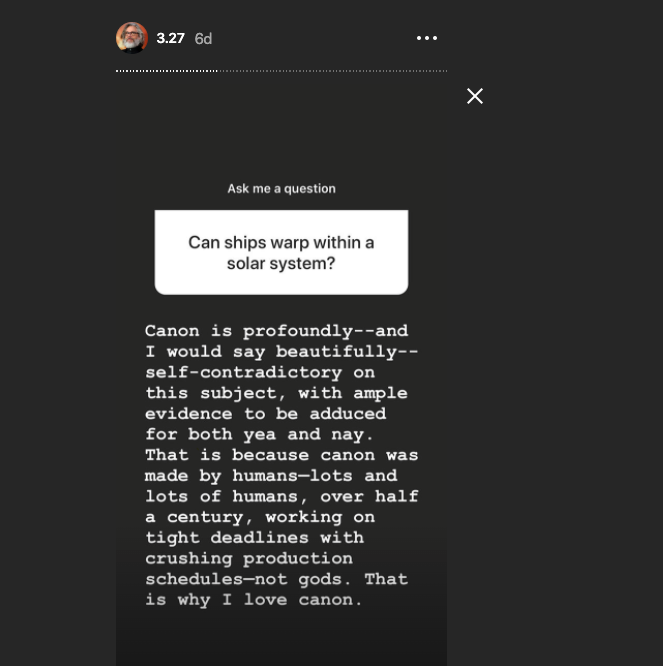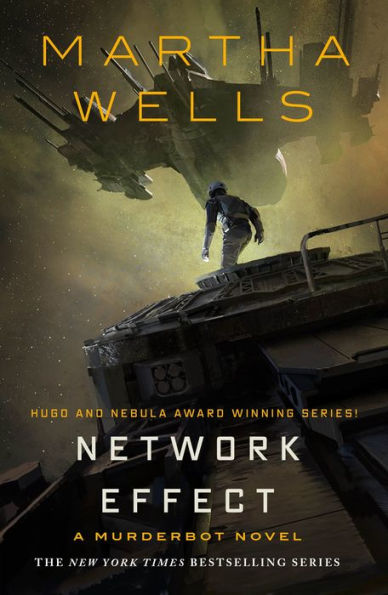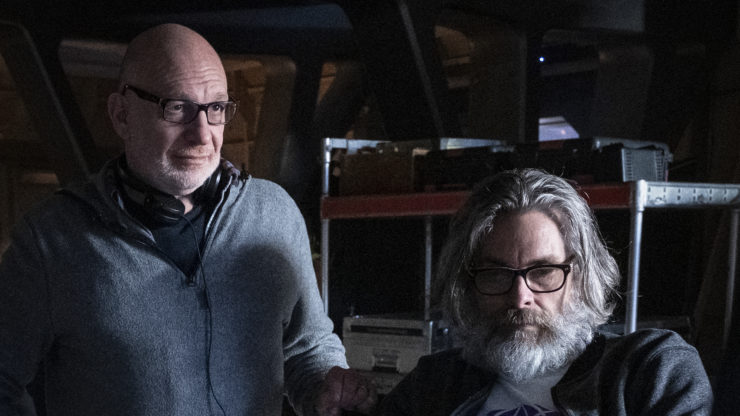Showrunner Michael Chabon remembers the exact moment when he knew he needed to talk directly to the viewers of Star Trek: Picard. At the end of a “gauntlet” of perfunctory red-carpet interviews with members of the press at the LA premiere of the series, Chabon describes “a sense of relief” in being greeted by what he describes as “probably 100 fans, a lot of them in cosplay. All I wanted to do at that moment was to go stand over there and talk to them and answer their questions and engage and be part of that.” And so, as Picard started airing, Chabon took to Instagram every week to answer fan questions about each episode.
This direct and overwhelming positive interaction with fans reveals the emergence of an encouraging trend. Some of the biggest science fiction and fantasy TV franchises are connecting directly with their fandoms, in a way that brings everyone down to Earth. From The Witcher to the in-production Wheel of Time TV series, to Chabon’s Instagram talkbacks about Picard, the line between fan and showrunner is getting warmly blurred.
[Spoilers ahead for Star Trek: Picard.]
If you have a complicated canon question about Star Trek: Picard, there’s a very real chance that Michael Chabon has directly answered that question on his Instagram account.
For example, were you genuinely (and understandably) confused about Bruce Maddox’s complicated Sythn plan and how Freelcoud factored into all of that? Chabon is more than happy to get deep into the weeds with fans on the ‘gram, giving several in-depth and complicated answers that go something like this:
“Freecloud was the ‘launch site’ for Dahj and Soji. That was where—in a lab financed by Byjayzl in exchange for some unspecified work he was doing for her—he reprogrammed them, prepped them, and sent them thence on their respective missions.”
This is literally just the tip of the Borg Cube. If head into Chabon’s stories on Instagram you’ll see that he has several of these Q&As, going back ten weeks to the premiere of Picard. He answers questions about Raffi’s vape pipe. He talks about characters dropping f-bombs. He meets fans halfway about Icheb’s eyeball getting ripped out. He talks about whether or not starships can (or should) warp that close to a planet. And, perhaps most importantly, he makes a few friendly jokes along the way. When one fan asked Chabon if Jean-Luc Picard’s new synthetic body retained his old artificial heart, Chabon said: “Nope. They wrapped it in tissue and he’s taking it home to be a chew toy to Number One.”

“Doing the Instagram stories has been about staying connected to fandom. Which, I do really see as overwhelming—in the case of Star Trek fandom—a positive force,” Chabon told me in a phone interview just before the series finale of Picard. “It’s a way for me to stay connected to those people in cosplay, standing there at the end of the alley. The people who are just so excited and so into it. And so full of enthusiasm. The show was made with enthusiasm, so it feels like an appropriate way to connect.”
When I point out to Chabon that this kind of thing has a rare, but memorable history in popular science fiction TV, we both fondly recall J. Michael Straczynski interacting with Babylon 5 fans in the ’90s on Usenet, and later, America Online. Ron Moore was on AOL for DS9 in the ’90s, too, and later, of course, interacted with fans of Battlestar directly online. But, for Chabon, someone who was known as an author of books like The Amazing Adventures of Kavalier and Clay, well before his current stint on TV, this kind of thing makes perfect sense.
Buy the Book


Network Effect
In the world of books, particularly the SFF genre (and its orbiting writers) creators interacting with their fans isn’t remotely new. George R.R. Martin has always talked directed to his fans, and so does Brandon Sanderson. Even Isaac Asimov famously responded to most fan letters directly. If we adopt a Harlan Ellison-esque posture and think of the world of SF (print) as truly different from the world of sci-fi (TV) then someone like Chabon bridges the gap. As a Pulitzer and Hugo Award winner, Chabon isn’t your typical corporate, big franchise showrunner. In all of his interviews, both on camera, on the phone, or online, it’s very clear that the only bigger Star Trek fan than the person reading this article might be Michael Chabon. Not that he’s making it into a competition, it’s just that unlike a lot of writers in similar positions, he’s clearly doing it because he loves the material. When I asked him if his goal with the Instagram talkbacks was to take the fight to the trolls and the haters directly, he told me the answer was no.
“I did it to connect to the people who love it. That was the motivation,” he explained. “But I mean, yeah, there is some toxic fandom for Star Trek, too. It’s horrible. But, it’s somehow especially disappointing to find it in the Star Trek context, sometimes makes you wonder if they’ve actually seen Star Trek. But to me, that’s a very small, maybe kind of vocal…they’re more likely to post their hate than someone who really likes the show or even loves the who is willing to post. But, I don’t take that [hate] very seriously at all. Because this show was made by people who love Star Trek. There’s no doubt about that.”
But it’s not just Star Trek. The showrunner of The Witcher is keeping in touch with that fandom, too. For proof, head on over to Lauren Schmidt Hissrich’s AMA on Reddit, in which she vowed to keep answering fan questions long after the actual AMA had ended. “Okay, guys, thank you for the amazing questions, the civil debate, and for not once calling me a moron. I averaged 3 minutes an answer, went over by a full hour, and still only got to about 10% of the questions. Here’s what I will do: I will keep coming back. Consider it an extended AMA, or… I guess it’s just called a discussion? I will continue to answer questions in order, as I have the time. If I’m not around as much, it’s because I’m actually working on S2. But I like it here and will come back.”
https://www.instagram.com/p/B7F0ZrqHGiy/
Hissrich’s warmth toward fans on Reddit might seem to strike some fans as an alternate universe. Aren’t people on Reddit supposed to be awful? Obviously, anyone who takes science fiction and fantasy even remotely seriously knows that all fandoms, as Chabon points out, have their dark sides, but that overwhelmingly, people who are passionate about these types of things are, for the most part, civil and just simply interested. Like Chabon’s willingness to discuss the finer points of Picard, Hissrich’s willingness to joyfully interact with fans seems to gesture toward a future in which—gasp—civility and shared fandom between creator and fan might become a new normal.
The showrunner of the hotly anticipated Wheel Of Time TV series seems to be in this same camp, too. Much like Michael Chabon, Rafe Judkins has also been using Instagram as a form where he can talk directly to fans about how the series is going, plus provide updates on how the series will differ from the beloved Robert Jordan (and Brandon Sanderson) novels upon which they are based. Judkins also explains what it’s like collaborating creatively with Jordan’s widow and Wheel of Time editor, Harriet McDougal—in essence, reassuring the fans that the series won’t betray Jordan’s original work.
https://www.instagram.com/p/B9cikx9ghUh/
Again, for readers of science fiction and fantasy books, this kind of interaction is the norm. And it should be. But when large amounts of money get involved with big, and very popular, SFF franchises, the fans can often feel like they’ve been left out in the cold. It’s not that showrunners of the past have done anything wrong per se, but with the likes of Judkins, Hissrich, and Chabon, it seems like a new, and noble example has been set. The showrunners are on the side of the fans, not hiding in a castle (or starship) hoping for the mobs to go away. In the case of these particular showrunners, being part of that throng seems to be their goal.
“The questions are often very good,” Chabon says of his fan talkbacks. “People notice when there are things we could have done better, and some of those questions are very perceptive. They weren’t always just canon police questions. Some of the discussions are really fantastic and just to be able to answer people’s questions is honestly a pleasure.”
Ryan Britt is a longtime contributor to Tor.com and the author of the book Luke Skywalker Can’t Read and Other Geeky Truths (Plume 2015.) His other writing and criticism have been published in Inverse, SyFy Wire, Vulture, Den of Geek!, the New York Times, and StarTrek.com. He is also an editor at Fatherly. Ryan lives with his wife and daughter in Portland, Maine where he teaches creative non-fiction for the Maine Writers and Publisher’s Alliance. He is represented by the Fischer-Harbage Literary Agency.










